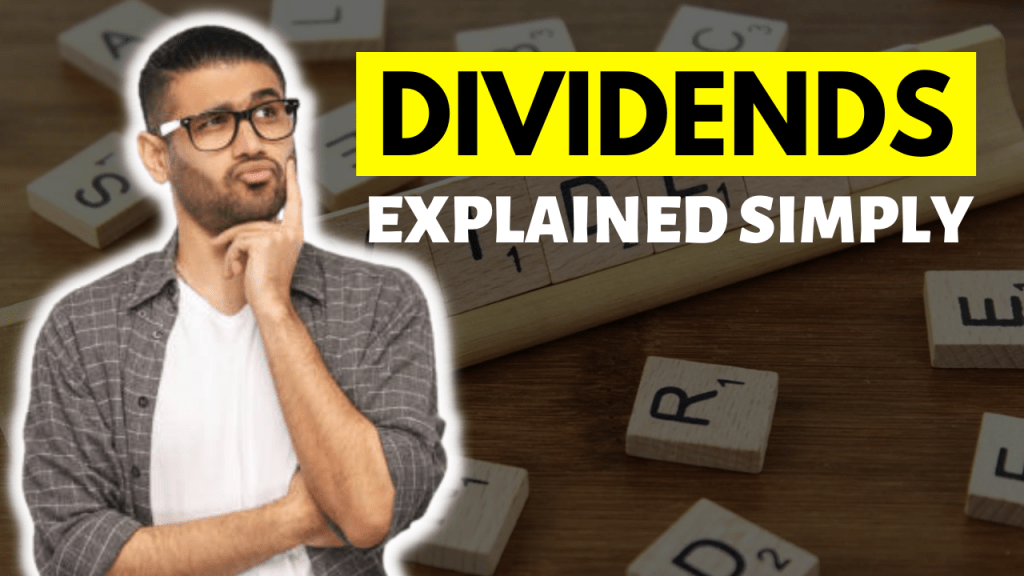
What is a stock dividend?
Dividends are one of the main ways that companies pay back shareholders when they see fit. And they’re also one of the most common reasons that investors buy stocks in the first place. But while everyone knows what dividends are in general, not everyone understands how stock dividends work or why they even exist.
So, what is a stock dividend? Here’s an explanation for the average investor that will help you understand this strange but important concept. Stock dividends can be a great source of passive income, allowing you to earn money from the investments you already own.
But how do stock dividends work, and why would anyone want them? Learn more in this investing guide on what is a stock dividend.
What are dividends in General?
If you buy stock in a company, you are an owner of that company. Sometimes, as part of owning your company, you will be paid dividends. Dividends are essentially profit sharing checks. If your company does well financially for a quarter or for one year, it can distribute profits back to its owners in order to reward them for having invested in it.
For example, if a company made $10 billion dollars last year and wants to pay out 50% of that to shareholders, all shareholders would receive a check from that company for $5 billion dollars. This money is called a dividend because it’s being distributed back out (dividing by) evenly among everyone who owns shares. (in addition to their original investment).
This indicates that investors think that company will perform well in future years and could increase earnings even more next time around.
How do stocks generate dividends?
When you buy a share of stock, you’re buying part ownership in that company. In order to increase shareholder value, many companies reinvest their earnings back into themselves and their business operations. When they do so, they aren’t really doing anything differently than before.
However, after all those retained earnings build up over time, it’s not uncommon for companies to pay dividends on them and distribute them to shareholders dividends are essentially a portion of those earnings that have been distributed as cash payments over time.
Frequently Asked Questions
Investing in stocks can seem intimidating to beginners, but there are plenty of resources available to help you. It’s important to do your research before investing in any company and before buying or selling stocks in general. Stock dividends can be confusing, even for seasoned investors; here’s some information about what they are and why they matter.
Hopefully, by learning about stock dividends now, you can avoid costly mistakes later on down the road. Here are some frequently asked questions regarding stock dividends
- How often do companies pay out dividends?
Most companies will make annual payouts (and many quarterly), but it varies depending on their business structure, finances, etc.
- When should I expect my money?
The amount of time between when you buy stock in a company and when that company actually pays out its quarterly/annual dividend depends on several factors. (usually based around regulations) So it’s impossible to give an exact answer but not paying out dividends as soon as one has announced happens occasionally so beware!
- What are the important things to know about dividends?
The size of your annual payout depends on two things:
1. first how much money you own in your investment and what percentage of that investment’s profits you get to keep as a dividend.
2. Secondly the Companies often pay out dividends only once or twice per year. If you want to boost your income, it’s best to look for stocks that pay dividends more frequently.
( If you wish to Watch a cool video explaining this topic – CLICK HERE )
Thinks to consider before investing into divided stocks
As an investment Dividend stocks also have the same advantages and risks. The biggest advantage of receiving dividends is that they’re paid automatically. That said, there are some risks to be aware of.
For example, if you have debt that you use to buy stocks and then those stocks pay a dividend, your debt will accrue interest that you have to make payments on while still collecting dividends. In short, it’s usually better to collect dividends in cash than in kind, especially if your portfolio value can’t handle any additional debts.
The risk here is its whole pattern works along with the stock market conditions. So if the stocks may give you greater dividend yield over time but the capital value of stocks may move down to negative side. It doesn’t me the dividend paying stocks always give greater capital gains.
So you have to diversify you portfolio with some growth stocks, blue-chip stocks and dividend stocks. Then only you can maintain a healthy portfolio. As per all conditions focusing on long term is very mandatory for dividend stocks as well.
